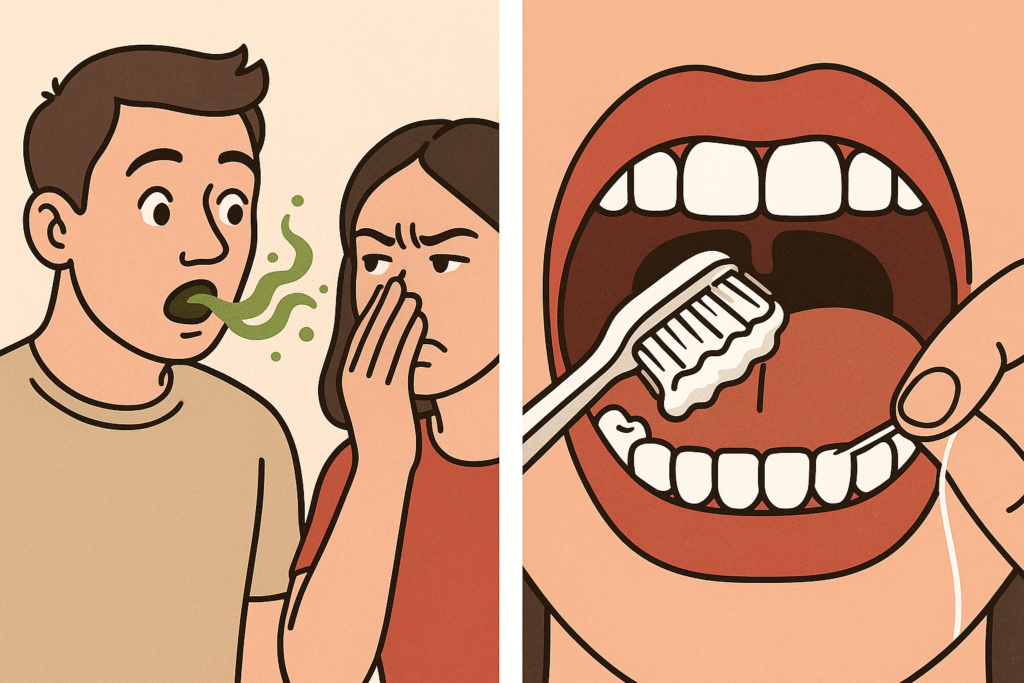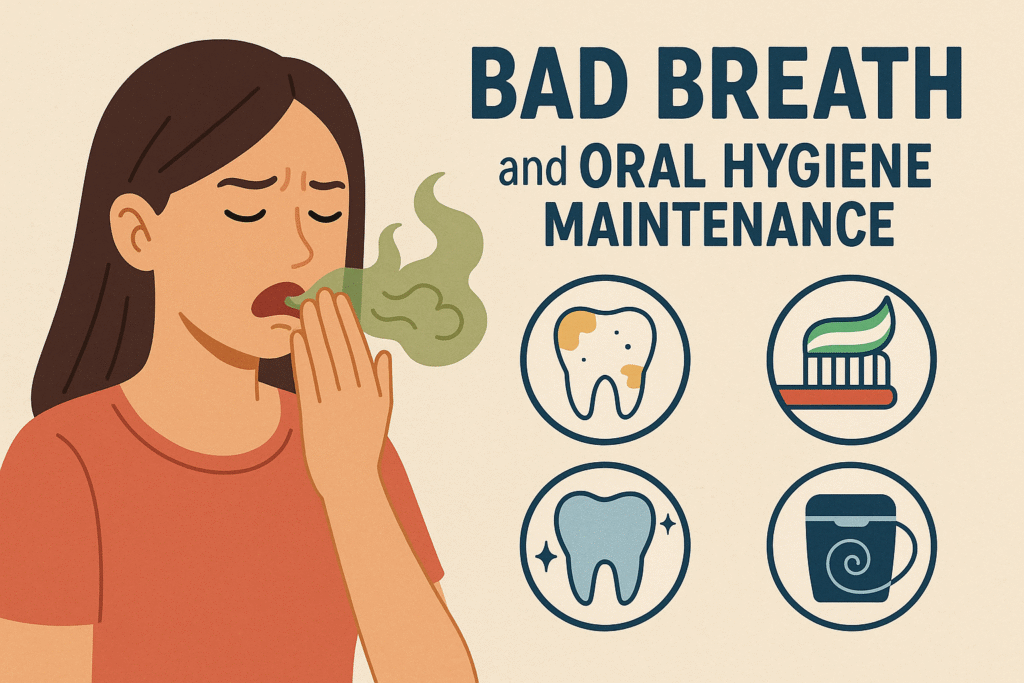Beyond the Morning Whiff: Unmasking the Causes of Bad Breath

We’ve all experienced it – that less-than-fresh feeling in our mouth, especially first thing in the morning. But for some, bad breath (or halitosis) is a persistent and embarrassing problem that goes far beyond a temporary morning phenomenon. If you find yourself constantly reaching for mints or shying away from close conversations, it’s time to understand the root causes. The good news is, most instances of bad breath are treatable once you identify the culprit.
Let’s dive into the common reasons why your breath might be less than pleasant:
1. The Usual Suspects: Oral Hygiene and Diet
- Poor Oral Hygiene (The Big One!): This is by far the most common cause. When you don’t brush and floss regularly, tiny food particles get stuck between your teeth and on your tongue. Bacteria in your mouth break down these particles, releasing volatile sulfur compounds (VSCs) – the primary source of that unpleasant smell. A fuzzy, white coating on your tongue is often a tell-tale sign of this bacterial buildup.
- Food Choices: What you eat plays a significant role.
- Pungent Foods: Garlic, onions, and certain spices are notorious for leaving lingering odors. The compounds from these foods are absorbed into your bloodstream and then released through your lungs, affecting your breath for hours, even after brushing.
- Sugary Foods: While not directly causing bad breath, sugary foods feed the bacteria in your mouth, leading to increased acid production and potentially contributing to cavities and gum disease, which can then lead to bad breath.
- Dry Mouth (Xerostomia): Saliva is your mouth’s natural cleanser. It helps wash away food particles and neutralize acids. When your mouth is dry, whether due to dehydration, certain medications, or medical conditions, bacteria can multiply more rapidly, leading to halitosis.
2. Underlying Oral Health Issues
Even with diligent brushing, persistent bad breath can signal a deeper problem in your mouth:
- Gum Disease (Periodontal Disease): This is a major contributor. Inflammation and infection of the gums create pockets where bacteria thrive and produce foul-smelling compounds. As the disease progresses, it can lead to bone loss and even tooth loss.
- Cavities (Tooth Decay): Decaying teeth provide ideal breeding grounds for bacteria, and the decaying tooth structure itself can emit an unpleasant odor.
- Oral Infections: Abscesses, canker sores, or other oral infections can also be sources of bad breath.
- Ill-fitting Dental Appliances: Dentures or bridges that aren’t cleaned properly or don’t fit well can trap food particles and bacteria.
3. Beyond the Mouth: Systemic Causes
Sometimes, bad breath isn’t originating from your mouth at all, but rather from a condition elsewhere in your body:
- Respiratory Tract Infections: Sinus infections, tonsillitis, bronchitis, or even a common cold can lead to post-nasal drip, where mucus drains down the back of your throat. This mucus can then be broken down by bacteria, causing bad breath.
- Gastrointestinal Issues: While less common than oral causes, certain digestive problems like acid reflux (GERD) or even some severe gut disorders can contribute to bad breath.
- Certain Medical Conditions: Diabetes (due to the production of ketones), kidney disease, and liver disease can all produce distinct odors on the breath. This is why persistent, unexplained bad breath warrants a visit to your doctor.
- Medications: Many medications can cause dry mouth as a side effect, indirectly leading to bad breath.
- Smoking and Tobacco Products: Beyond the obvious smell of smoke, tobacco use significantly increases the risk of gum disease and other oral health problems, all of which contribute to chronic bad breath.

When to Seek Professional Help:
If you’ve tried improving your oral hygiene and addressing dietary factors but your bad breath persists, it’s crucial to consult our specialists at Perfect 32 Dental.
- Start with your dentist: Dr.Shaily and Dr.Praveen can rule out or treat any underlying oral health issues like gum disease or cavities.
- If your dentist rules out oral causes, see your doctor: They can investigate systemic conditions that might be contributing to your halitosis.
Don’t let bad breath impact your confidence and social interactions. By understanding its causes, you can take proactive steps to achieve fresh breath and a healthier smile. Visit us at Perfect 32 Dental, the best dental clinic in Ranchi, and get that confident, odour-free smile!
